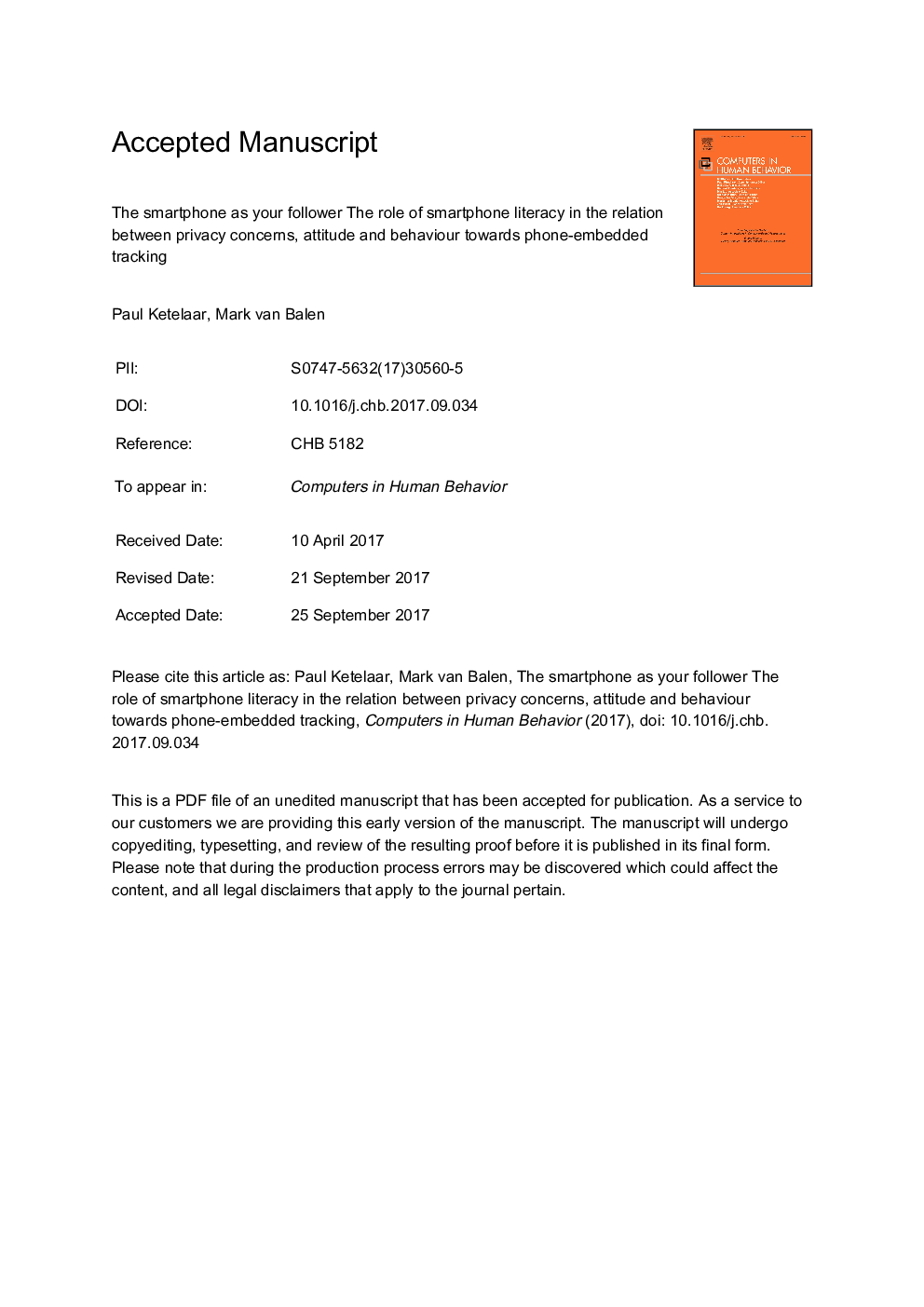| Article ID | Journal | Published Year | Pages | File Type |
|---|---|---|---|---|
| 4937000 | Computers in Human Behavior | 2018 | 27 Pages |
Abstract
Previous research on the collection of personal information in order to make tailor made advertising and services possible shows that the more overt the collection is, the more users will resist and try to avoid it. However, this research has always focussed on third parties, like apps and websites, collecting this information, while the smartphones on which these third parties operate also collect information. Based on the Psychological Ownership Theory and the Diffusion of Innovations Theory a survey (NÂ =Â 924) has shown that the more privacy concerns users experience, the more negative their attitudes are towards the collection of location data by their smartphones, and that they adjust the settings of their smartphones in order to prevent being tracked. Users' earlier position on the adoption curve, and with that their smartphone literacy, decreases the strength of the connection between privacy concerns and attitude. It is important for the companies that are responsible for location tracking to help users feeling in control and to acknowledge that people own their data, not the companies who bought their data.
Keywords
Related Topics
Physical Sciences and Engineering
Computer Science
Computer Science Applications
Authors
Paul E. Ketelaar, Mark van Balen,
